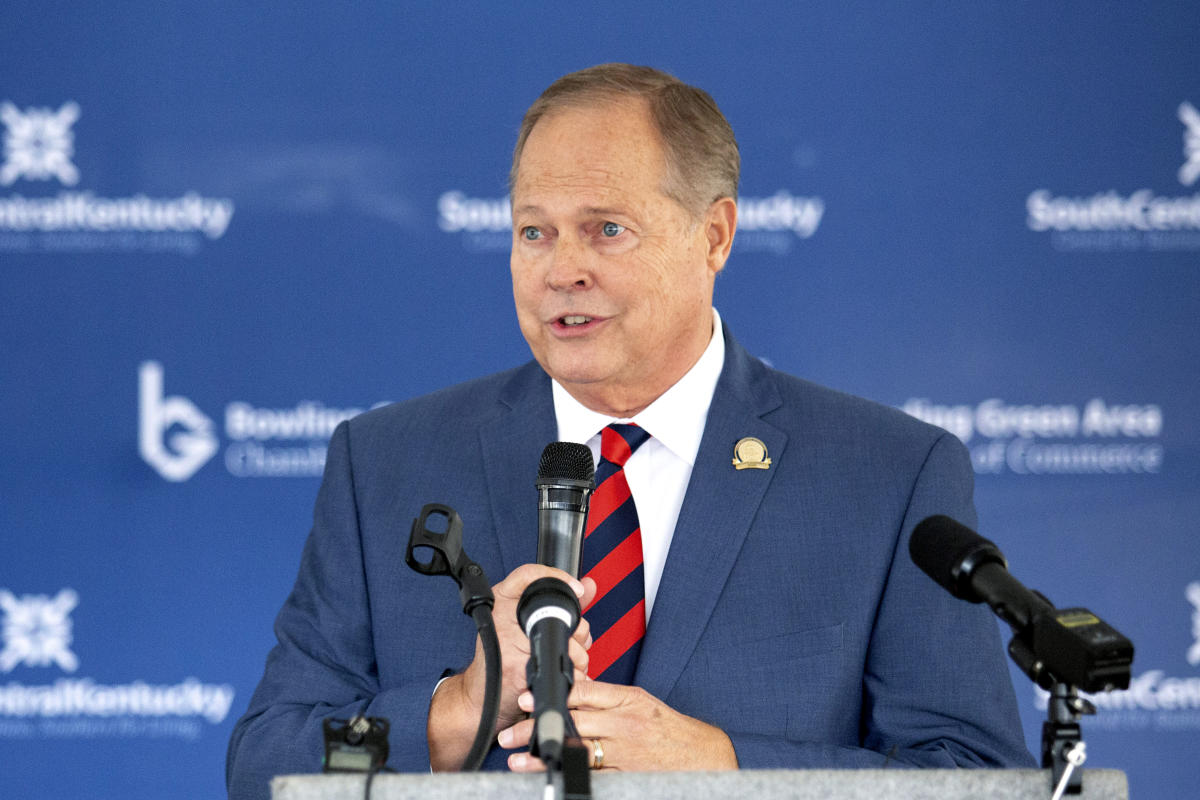Reality Check is a Star series holding those in power to account and shining a light on their decisions. Have a suggestion for a future story? Email realitycheck@kcstar.com.
Early voting started Friday on the stadiums sales tax ballot issue in Jackson County, with the first absentee ballots being cast for the April 2 election.
The outcome will determine the fate of a proposed 40-year sales tax to pay an unspecified portion of the costs of major renovations at Arrowhead Stadium and a new downtown ballpark for the Royals. Yet early voters are making their decisions without key details available to them.
As of late Friday afternoon, the same day military and overseas voting started — regular absentee voting starts Tuesday — the county’s top lawyer had no documents spelling out the terms of the team’s new leases or exactly how the new tax money would be spent.
The county legislature had only a joint letter of intent from the teams broadly explaining their projects when legislators voted 7-2 to put the tax on the spring ballot. The deadline for doing so was the next day.
County Counselor Bryan Covinsky said that as of 4:45 p.m. he had not seen a negotiated agreement from the Royals on what the terms of the lease would be for a new county-owned ballpark to replace Kauffman Stadium. Nor did he possess a copy of a long-term lease for the Chiefs’ use of county-owned Arrowhead past the current expiration date in 2031.
The Chiefs have yet to give specifics of what renovations they plan for Arrowhead.
Covinsky said he was told to expect some documents Friday. When he does get them, he said he does not know when they might be made available to the voting public.
One thing is for certain. Community benefits agreements with the teams won’t be part of any packet of paperwork delivered to Covinsky’s office, says Gwendolyn Grant, president of the Urban League of Greater Kansas City and chief negotiator on the CBA.
“We’re working on it, but I don’t really have much to share at this point,” she said, “because it’s not done.”
Both teams have said they are committed to signing agreements that would commit them to using union labor on their projects, as well as promising long-term benefits to stadium workers and other community benefits like a commitment to support affordable housing.
Grant said she hopes to have those negotiations finished by the end of the month.
Legislator Manny Abarca, who pushed to put the measure on the ballot before negotiations were complete, said in a social media post on Jan. 22 that he and several of his colleagues required full details of the leases and community benefits agreements prior to the start of early voting, “or my support will not be there for the ballot initiative.”
He backtracked on that when asked about it Friday via direct message on X, formerly Twitter.
Initially, Abarca said that his conditions had been met. But when informed of Grant’s comments, he said the teams’ failure to meet his personal deadline on the benefits agreement put more pressure on them to get it done.
“Knowing some voters will make a decision as early as today, means the teams are ‘on the clock’ and the game ends on Election Day,” he said. “We the county are leveraging the expiring ‘clock’ to pressure the teams to get this done fast and settle on more positive benefits for the community impacting across Jackson County.
“Remember, no tax is collected until we authorize a lease, that would include a development agreement, and cba’s signed.”
Funding questions remain
The proposed site for a new Royals stadium wasn’t decided when the tax measure was put on the ballot, either. The team removed that from the list of unknowns with the announcement on Tuesday afternoon when the Royals announced they had picked the East Crossroads.
But voters still don’t know where the rest of the money needed to build the $1 billion-plus stadium would come from. The team says its overall investment will be in excess of $1 billion, but that also includes developing two square blocks east of the stadium.
The state of Missouri might contribute, but that’s uncertain. Asked whether Kansas City tax dollars will also go into the project, Mayor Quinton Lucas’ chief of staff said after Tuesday’s announcement that City Hall had not been asked yet.
Voters approved the current stadiums sales tax in 2006 to raise $425 million, which was split evenly between the Kauffman and Arrowhead renovation projects The Royals put in an additional $25 million and the Chiefs spent an extra $125 million. The state also contributed toward the projects.
The tax also provide the teams with revenue for operations, repairs, management and maintenance of the venue, as would a new tax.
The current sales tax expires in the fall of 2031, several months after the current leases expire. If a new tax is approved in April, the current tax would expire and the remaining principal owed from the 2006 bond issue (about $200 million) would be refinanced, the ballot language says.
Signup bonus from



